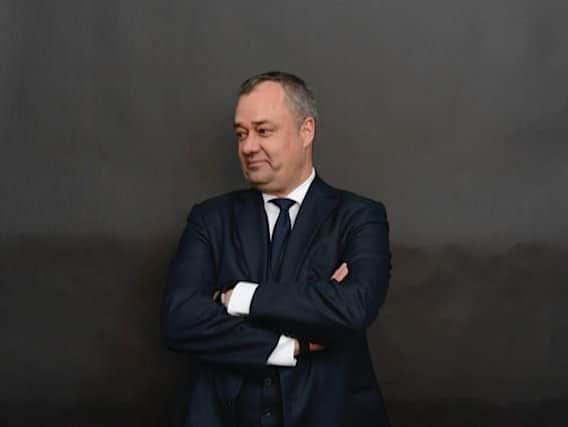University of Northampton graduate trying to bring Assad to book for crimes against humanity


Law graduate Toby Cadman joined forces with fellow international human rights law specialist Almudena Bernabeu and University of Northampton graduate Carl Buckley last year to form the international justice chambers Guernica 37 – and hit the headlines in early 2017 after the organisation filed the criminal case against President Bashar al-Assad’s regime for crimes against humanity.
The case has been described as a dawn for justice for Syria, and is the latest in a long line of investigations Toby has pursued into war crimes and human rights abuses.
Advertisement
Hide AdAdvertisement
Hide Ad“While it’s fair to say the International Criminal Court has failed the Syrian people, the real issue is that it has no jurisdiction in the absence of a UN Security Council referral,” said Mr Cadman.
“Therefore, rather than putting the blame at the door of the ICC, the blame must be placed squarely on the doorstep of Vladimir Putin.
“It is his regime and his regime alone that has prevented justice in Syria. It therefore must fall to national courts to ensure that such crimes do not go unpunished and the current impunity afforded to the Syrian Government Forces is brought to a prompt end.
“Our group acts on behalf of a Spanish victim and filed a criminal lawsuit together with the Spanish Association for Human Rights. The identification of a Spanish victim – a family member of a Syrian national who disappeared, and was detained and tortured in one of the regime-controlled detention facilities – confers jurisdiction on the Spanish Criminal Courts to open a criminal investigation. It is therefore a hugely significant case and one that I am extremely proud to be a part of.”
Advertisement
Hide AdAdvertisement
Hide AdGraduating with a law degree from Northampton in 2000, Mr Cadman returned to study for a Master’s in public international law nine years later.
“I was exposed to areas of law, such as human rights and transnational crime, early in my studies,” said Mr Cadman.
“This shaped my career path. I was also pushed by two of my law lecturers to pursue a career at the bar, rather than as a solicitor. I was told that this would be hard and that getting experience in my chosen field would be essential. I also realised that pursuing the Master’s would be critical for my career development.”
Mr Cadman's first graduate position saw him seconded as a legal advisor to Bosnia and Herzegovina’s Human Rights Chambers. Since then, he’s held a variety of roles, including head of the prosecution section for war crimes at the Bosnian War Crimes Chamber, before gaining a reputation for extradition prosecution at London chambers, 9 Bedford Row.
Advertisement
Hide AdAdvertisement
Hide AdThe former Northampton-based student believes that three key changes could help prevent future atrocities from happening.
"The sad reality is that there is no quick fix," Mr Cadman said.
"Each situation requires a different approach. However, what each situation requires is an understanding that there can be no peace without justice and justice must be more than vengeance, it must be meaningful.
"If I had a magic wand I would, nonetheless, make three broad sweeping changes. First, I would remove the veto power of the permanent members of the UN Security Council.
Advertisement
Hide AdAdvertisement
Hide Ad"Second, I would establish a system of suspension or expulsion from the UN for gross human rights violations. For example, how can one morally support the continued membership of States such as Syria, Iran, Egypt and Bahrain on the UN and how can one support states such as Saudi Arabia that continues to flout human rights obligations from holding leadership roles in the UN Human Rights Council.
"Thirdly, I would expand the jurisdiction of the International Criminal Court. I would impose a system by which once a sufficient number of states have joined, the Prosecutor could be granted jurisdiction to investigate situations outside the current limited jurisdictional basis. This would allow states such as Syria to be investigated."